How Thailand is remaking TV dramas, from Taiwan's Meteor Garden to China's Addicted
Over the past decade or so, Thailand has come up with its own remakes of popular shows from overseas, from Chinese and Korean dramas to Taiwanese idol series. Producers have learnt that they need to inject their own uniqueness to the remade dramas to find an audience, including the large Chinese market. In recent years, Thailand's own brand of "boys' love" or BL dramas have even found favour with many of the source markets of its remade dramas. Zaobao correspondent Wang Yingmin talks to production companies and viewers to understand the pull of Thai TV series.

Most Thai dramas are adaptations, with many of them based on local novels, folk tales or remakes of old dramas. About ten years ago, these adaptations widened their scope to include overseas source material, bringing the popular Korean drama Coffee Prince to Thai screens in 2012.
That same year, Thai cable channel TrueVisions launched the "Asian Classic Trilogy" project, pumping in huge money to adapt K-dramas like Autumn in My Heart and Full House, as well as the Japanese-manga originated Playful Kiss, into Thai dramas.
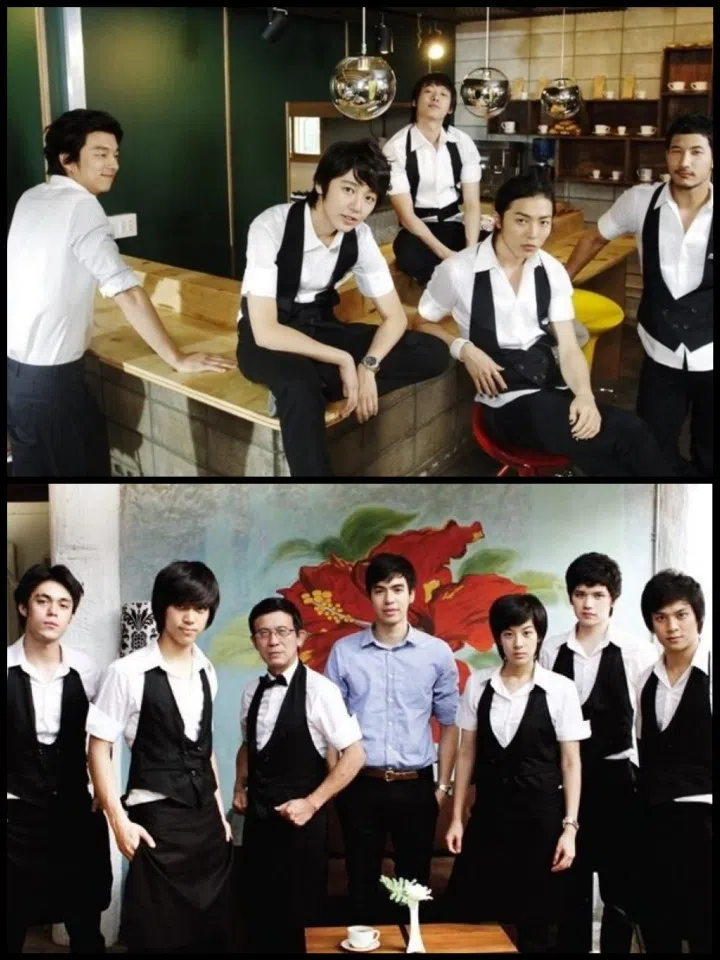
This trend has lasted over the past few years - since 2018, an average of two to three Thai dramas adapted from Korean dramas have aired each year, including Secret Garden, My Love from the Star, Another Miss Oh, Bad Guys, as well as Good Doctor.
So far, Thailand has remade over 50 foreign dramas.
From Korean, Japanese to Taiwanese and Chinese
After remade K-dramas found some success, remade Taiwanese idol dramas also gradually gained popularity in Thailand, with Thai versions of dramas such as The Fierce Wife, The Prince Who Turns Into A Frog, My Queen, and In Time With You.
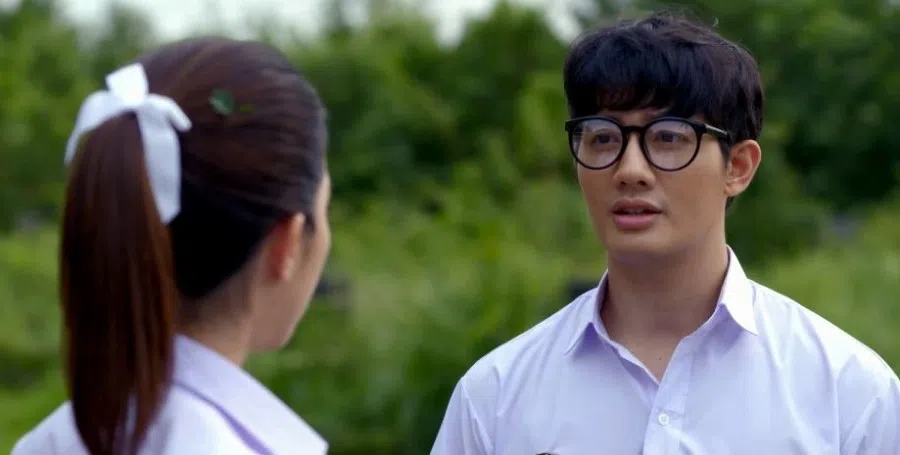
In 2017, the Thai version of Fated to Love You was well received in China and Thailand; in 2018, the Thai drama Mia 2018 - adapted from The Fierce Wife - set a new viewership record. In recent years, with the wave of Chinese TV and film productions, Thai adaptations of Chinese dramas like Find Yourself and A Love So Beautiful have also found favour. So far, Thailand has remade over 50 foreign dramas.
A cross-border collaboration
Beijing Yiding Legend Culture Co., Ltd, headquartered in Beijing and whose Thai office is named Artop Media (Thailand) Co., Ltd, was established in 2009 and is dedicated to the production and distribution of China-Thai films and TV series. Since 2013, they have ventured into investment and production, not only producing Chinese dramas but also creating Thai remakes such as In Time with You, The Prince Who Turns Into A Frog, Boss & Me, and My Lucky Star, all of which have been aired on China-Thai platforms.
Beijing Yiding Legend Culture Co., Ltd general manager Zhang Liang told Zaobao that the wave of remaking foreign dramas from places like South Korea, Taiwan, and Japan began around 2012 with the remake of the K-drama Coffee Prince, followed by the Thai versions of Full House in 2014 and Playful Kiss in 2015. Thai adaptations of classic American dramas such as Ugly Betty and Gossip Girl also came out.
"If it doesn't perform well in Thailand, it is also difficult to succeed overseas." - Zhang Liang, general manager, Beijing Yiding Legend Culture Co., Ltd
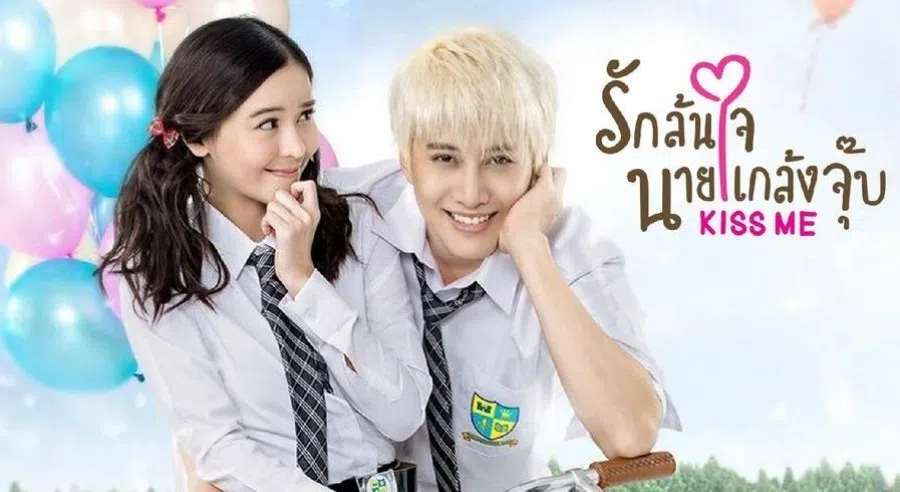
With excellent predecessors, it is relatively easy for remakes to succeed. However, Zhang Liang notes that there are exceptions. "It depends on whether the localisation is done well; simply filming something again will not work because people will find the original version difficult to surpass."
Also, Thai remakes see different results in different regions. Zhang says the Thai versions of Full House and Playful Kiss were popular among Chinese audiences but received little attention in Thailand. "There are many reasons for poor ratings in Thailand. For example, Thai broadcasting platforms are smaller with less influence, or the aesthetics do not suit the local audience. If it doesn't perform well in Thailand, it is also difficult to succeed overseas."
"I think stories about youth and pain (issues of growing up and youthful love) are most likely to be remade... Thailand is quite adept at portraying love and relationships." - Yang Ying, a Chinese fan of Thai dramas
Thais adept at portraying love and relationships
Yang Ying, a Chinese national working in an e-commerce company overseeing the Thai market used to study Thai in university. She began watching Thai films and TV series such as Full House, Boss & Me and Fleet of Time, to help her learning of the language.
She told Zaobao: "I haven't watched the original versions, so I treat them as new Thai dramas. I think the first two are not bad, with good casting and smooth plot development. There is sweetness and heartbreak, which works quite well."
Yang has noticed that in recent years, there are more Thai remakes of overseas dramas due to the popularity of such adaptations and the need of Thai companies to create new stars - the Thai version of Meteor Garden launched the Thai F4.

"I think stories about youth and pain (issues of growing up and youthful love) are most likely to be remade. They are easy to film, the storylines are not too complicated, and Thailand is quite adept at portraying love and relationships. It is also easier to promote newcomers," Yang commented.
Lu, a Chinese viewer who is a 30-year-old teacher, has been following Thai dramas since the early days when they were brought in by CCTV. She said films and TV series reflect the ideas and values of a place or a generation, and the key to successful remakes lies in capturing the characters and adapting them to be relevant, ensuring that the story and characters keep up with the times. "Don't completely imitate Europe or the US, or cater too much to the market in filming it in the European or US style, or China style; Thai dramas would lose their essence."
iQiyi collaborated with Thai production company Be On Cloud (BOC) to create their first original Thai drama, KinnPorsche The Series, which received positive reviews and saw impressive global ratings in 2022.
Creating fresh content: iQiyi and BOC
Parnsuk Tongrob (Poppy), country director of iQiyi Thailand, said there is a demand for Chinese film and TV content in Thailand, and iQiyi sees the potential in the market, which is why the Chinese online video platform decided to expand into the Thai market.
In recent years, besides distributing Thai dramas overseas, iQiyi collaborated with Thai production company Be On Cloud (BOC) to create their first original Thai drama, KinnPorsche The Series, which received positive reviews and saw impressive global ratings in 2022.
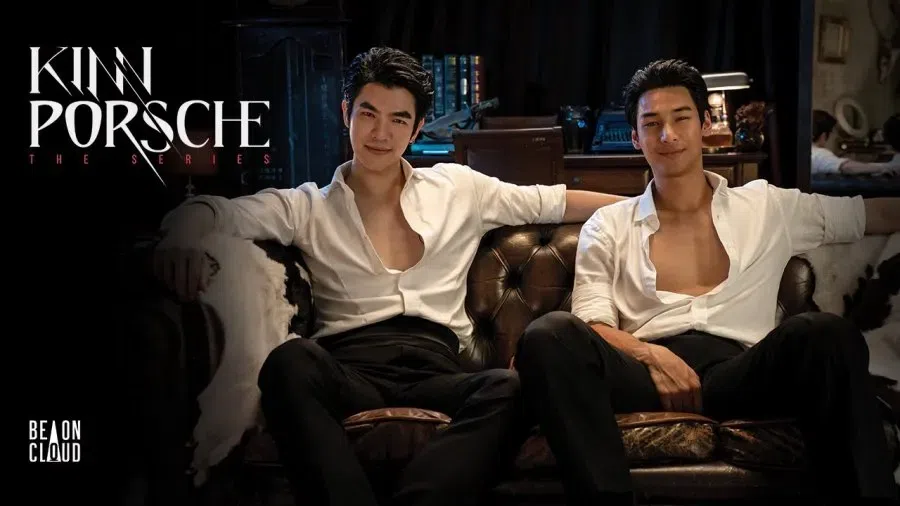
As for whether there are plans to remake overseas dramas, Poppy said there have been many remakes in Thailand in the past, but the results often fell short of expectations, so they approach remakes with caution. "iQIYI has strong IP resources, and we are exploring the feasibility of remakes. The first step is to unlock the formula for successful remakes."
Making good remakes in Thailand
Zhang Liang said there are considerations in remakes, including reception and content.
He noted that the key factor in any project is its reception, so Artop Media gives priority to the vast Chinese market when making decisions. However, exceptions are catered for when a project has the potential to succeed without the Chinese market. "For example, we adapted a comic into a live-action Thai version. We focused primarily on Thailand and Japan for copyright revenue as the story contained elements that may not appeal to Chinese audiences."
"In the Taiwanese version, 'I like you, but I won't say it; I just want to stay by your side.' However, young people have different values now. They find this tedious." - Zhang Liang
In selecting the right content, Zhang considers the influence of the work and whether it is a genre that Thailand can film well. Zhang said: "Genres like science fiction or highbrow material may not be Thailand's strong suit - it does better in remaking emotional or ethical dramas."
Furthermore, remakes cannot simply be a direct copy of the original version; one has to consider if the values of the characters remain relevant since its original release.
Citing the example of the Artop Media-produced Thai version of In Time with You, a remake of the Taiwanese idol drama from nearly ten years earlier, he said the ratings of the Thai version were not so good even though the Thai cast closely resembled the Taiwanese cast.
Zhang explained, "In the Taiwanese version, 'I like you, but I won't say it; I just want to stay by your side.' However, young people have different values now. They find this tedious. They will express their feelings for someone no matter what and don't want to act coy."
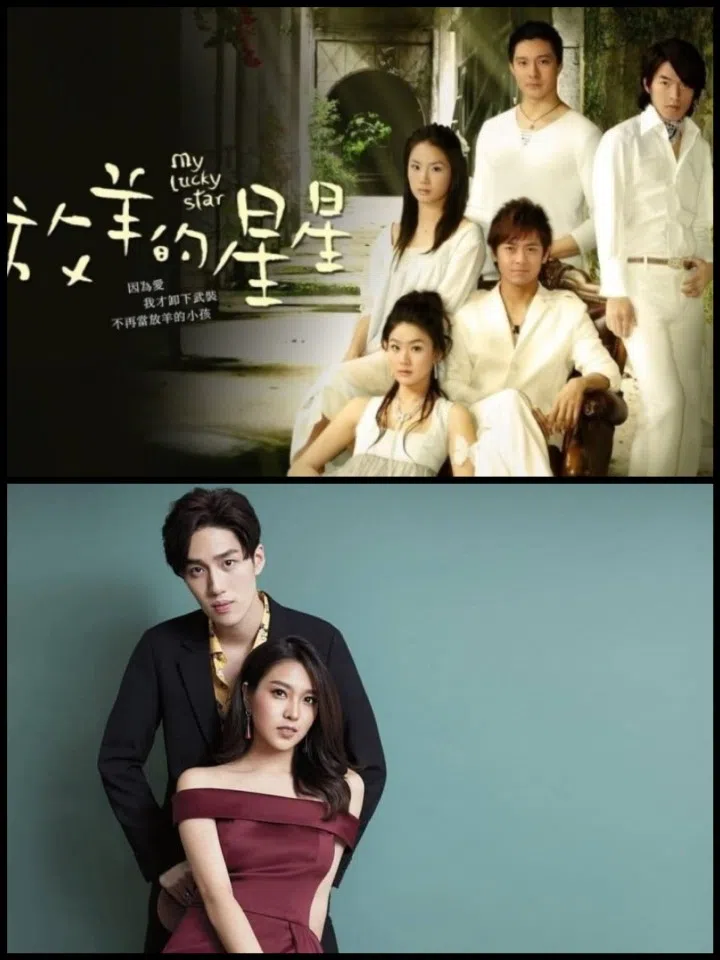
The Thai version of My Lucky Star, also produced by Artop Media, is a remake of the Taiwanese idol drama starring Jimmy Lin and Korean actress Yoo Ha-na in 2007. It aired in April on One 31 TV in Thailand and Mango TV in China. The Thai version consists of 16 90-minute episodes, while the version aired on Mango TV has 21 45-minute episodes.
Lu has watched both the Taiwanese and Thai versions of the show, and when asked about the differences between the two, she believes that what made the Thai version particularly enjoyable was the clear and concise storyline of the main characters, as well as the quick pacing.
She also noted that the Thai version didn't simply replicate the Taiwanese version, but moderately strengthened the personality of the female lead. "Modern female viewers no longer like the 'silly, sweet, innocent' type, or the damsel in distress. Female leads with a fighting spirit or showing independence are more popular.
Thai-style melodramas a strength
Thai dramas are known for exaggerated melodrama, which is injected into remakes and amplified. In the Thai version of My Lucky Star, the family relationships in the drama are more intricate than in the Taiwanese version.
Zhang Liang believes that the allure of Thai melodrama lies in its ability to release emotions that cannot be shown in real life. "Thailand is a land of smiles. Thais are polite and seldom use coarse language. On the surface, society seems repressed. But in Thai dramas, you see people getting slapped and there is verbal violence, allowing viewers to release their emotions, which is cathartic."
For Yang Ying, melodrama in Thai dramas means dramatic upheavals, where conflicts are intense and the audiences are given no time to breathe. "For example, characters discover their parent-child relationship only at the end, a pair of lovers whose parents killed each other! Such intense conflictual endings are truly melodramatic!"
...the Thai market is inclusive and open, allowing most storylines as long as they don't involve the Thai royal family or religion.
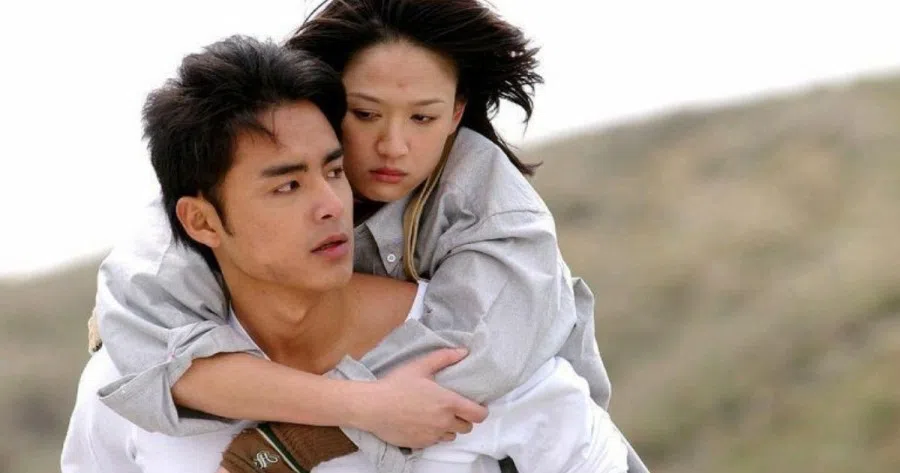
From transgender issues and revenge to forbidden love, Thai dramas are known for their over-the-top and boundary-pushing content. One saying goes: "There are things you can't imagine, but nothing a Thai drama can't portray."
But rather than calling it melodrama, Lu feels Thai dramas are able to depict the intricate emotional entanglements of family. Poppy agrees, saying the most prominent aspect of Thai dramas is melodrama, which is particularly popular in Southeast Asia. He says: "Although each culture is different, we still share a common human destiny and the universal language of love, Thai dramas present stories in a way that is easy to accept."
Zhang Liang points out that the Thai market is inclusive and open, allowing most storylines as long as they don't involve the Thai royal family or religion. The Thai National Film Bureau focuses on reviewing content produced overseas, while Thai TV dramas usually only require registration. Zhang adds that while there is no standard boundary set in Thailand, Thai television stations self-regulate and work within limits.
Rise of Thai BL dramas
Over the past decade, Thai remakes of foreign dramas have mostly revolved around heterosexual relationships and family ethics, with only a handful of BL dramas (also known as boys' love or gay romance dramas).
However, Zhang Liang has found that Thailand produces at least 50 BL dramas per year, and the number is growing, firstly because Thailand has a tolerant film and television censorship system that is not controlled by mainstream values or legislation, and secondly because there is a certain following of this drama genre in Thailand. Also, production companies see the commercial potential of BL dramas, including the popularity of actors through fan meets, activities and endorsements, and many are now producing BL dramas.
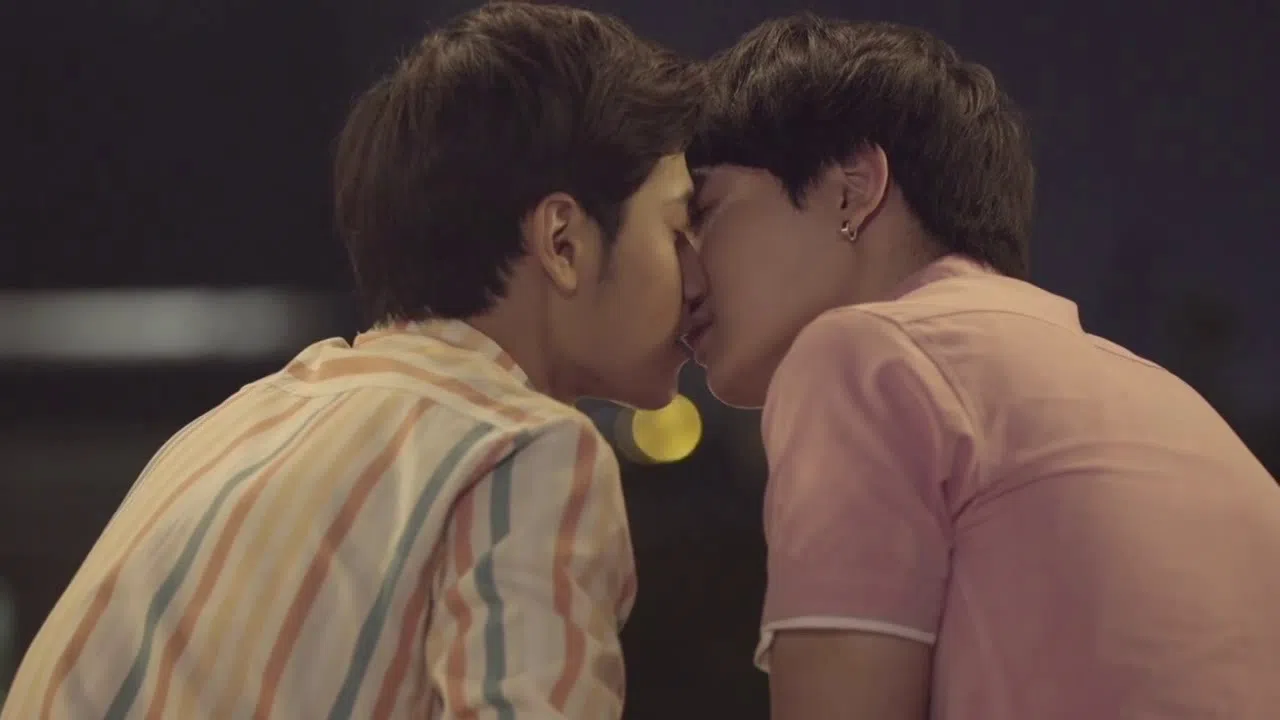
The first Thai BL work was the 2007 Thai film Love of Siam. Yang Ying says the film was popular at the time, but the BL drama craze truly took off with the 2016 series SOTUS: The Series.
After that, school-themed Thai BL dramas started coming up, with at least one popular BL drama released each year. "Production companies believe that the success of BL dramas can be replicated, as they are easy to produce. With attractive young actors and youth-oriented scripts, they have the potential to become hits. That's why we see an increasing number of BL dramas."
Recently, Yang came across the news that Thailand is adapting the Chinese BL drama Addicted. The original series was a phenomenon, and Yang is now looking forward to the Thai adaptation, including the cast and the final product.
Much potential
Southeast Asia has become an important market targeted by platforms like iQiyi and Tencent Video in recent years, and Thailand seems to be one of the countries these platforms are eyeing.
Zhang Liang notes that Thailand, Indonesia, and Vietnam are the key markets for recent foreign investments. The advantage of the Thai market is that it is relatively mature and structured, and has its own industrial framework and infrastructure. However, as a rather small and well-developed market, growth in Thailand's film and TV industry's development centres on new broadcasting platforms. "When Thailand transitioned from traditional analogue signals to digital signals in 2015, many new platforms emerged, and a bunch of new production companies followed suit."
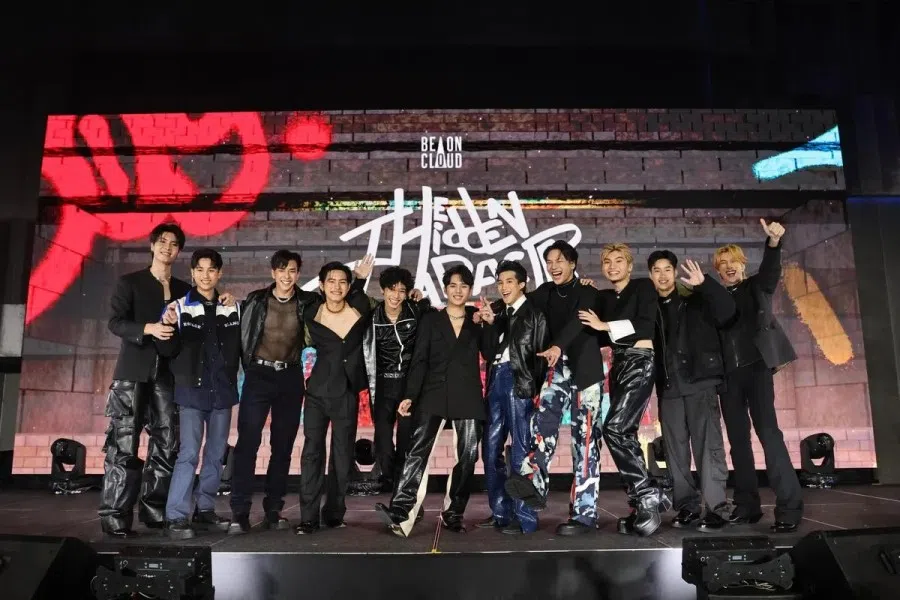
With the entry of streaming platforms like Netflix and Disney+ into Southeast Asia, there has been new growth in the Thai market. However, Zhang Liang says this growth is unstable and not significant, as demand in the Thai market is not as high.
On the other hand, Poppy sees the potential for development in the Thai market. He feels it will take time for Thai film and TV to standardise operations and reach industry standards. While the current quality of productions varies, he has confidence in Thai-produced content, and considers himself fortunate to have many like-minded friends in the industry who are passionate about film and TV production. "Some people may prioritise financial returns, but our partners share the same goal, hoping to export Thai film and TV content overseas."
Following KinnPorsche, iQiyi and BOC recently collaborated again to launch a reality show called The Hidden Character, featuring 11 young Thai actors. Poppy disclosed that iQiyi plans to release a spin-off drama featuring the actors from the reality show, which will be another Thai original series from iQiyi.
He said several screenwriters will collaborate on the spin-off drama, including a thriller and suspense writer, a writer specialising in youth themes, and a writer skilled in creating medical-themed BL dramas. "They will come together to create a thriller and suspense drama, with 'BL' being just one element of it."
This article was first published in Lianhe Zaobao as "取经中台日韩剧 泰国翻拍洒狗血以奇胜".





